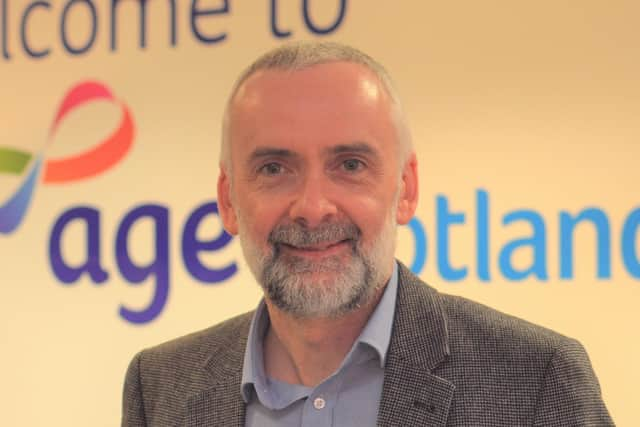Community groups are a lifeline for older people - Mark O’Donnell
Our national helpline often receives calls from older people feeling isolated or lonely and the Community Connecting service aims to tackle this head on by connecting anyone aged 50 and over to organisations that offer friendship, social activities, health and fitness groups and events.
The service was paused during the pandemic as group activity was vastly reduced, but we’re delighted to be back and building up our database of groups again. We’ve been asked to help find all sorts of different opportunities – from Men’s Sheds to IT classes, exercise to befriending opportunities. There really is something for everyone.
Advertisement
Hide AdAdvertisement
Hide AdOlder people’s groups fulfil an incredibly important role in communities across Scotland. Our research estimates that more than 200,000 older people rely on social clubs and groups for company. Our Keeping the Doors Open report highlights the pressures faced by older people’s groups and their extensive benefits to their local communities.


Sadly, over the past two years more than 30 older people’s community groups in membership of Age Scotland have closed, and we know that others are struggling. The impact that the Covid-19 pandemic has had on their operations, finances, membership, and activities has been significant.
These groups largely had to close their doors towards the end of March 2020 as we entered lockdown and now face new cost-of-living challenges. Our report found that the main issues facing these groups included rising energy bills for premises, difficulties in securing core funding, operational and transport costs, drops in the number of members or service users and a reduction in the number of volunteers and committee members. We are calling for the Scottish Government, local authorities, funders, politicians and other partners to commit to continuing to provide groups with the resources and support they need to flourish in the long term.
It’s heart-breaking to think that the equivalent of one person on every street in Scotland feels lonely all or most of the time. Feeling connected to the local community is a huge factor in tackling loneliness and isolation and can make a real difference to the wellbeing of older people. Connecting with your community all starts with a call and a friendly chat through our free 0800 12 44 222 helpline. We’d love to hear from older people looking for new opportunities in their local area. It would also be great to hear from organisations who would like us to refer potential new members to their group or service or anyone who would like to volunteer to support the service. Together we can put a stop to loneliness in Scotland and be there for older people who need our help.
Community groups are a lifeline for older people and make Scotland a happier and healthier place to live. We need to do everything we can to protect these community groups and get older people more connected and less lonely in 2023.
Find out more about Age Scotland’s Community Connecting service by calling the free 0800 12 44 222 helpline, or at www.age.scot/communityconnecting.
Mark O’Donnell, chief executive at Age Scotland
Comments
Want to join the conversation? Please or to comment on this article.